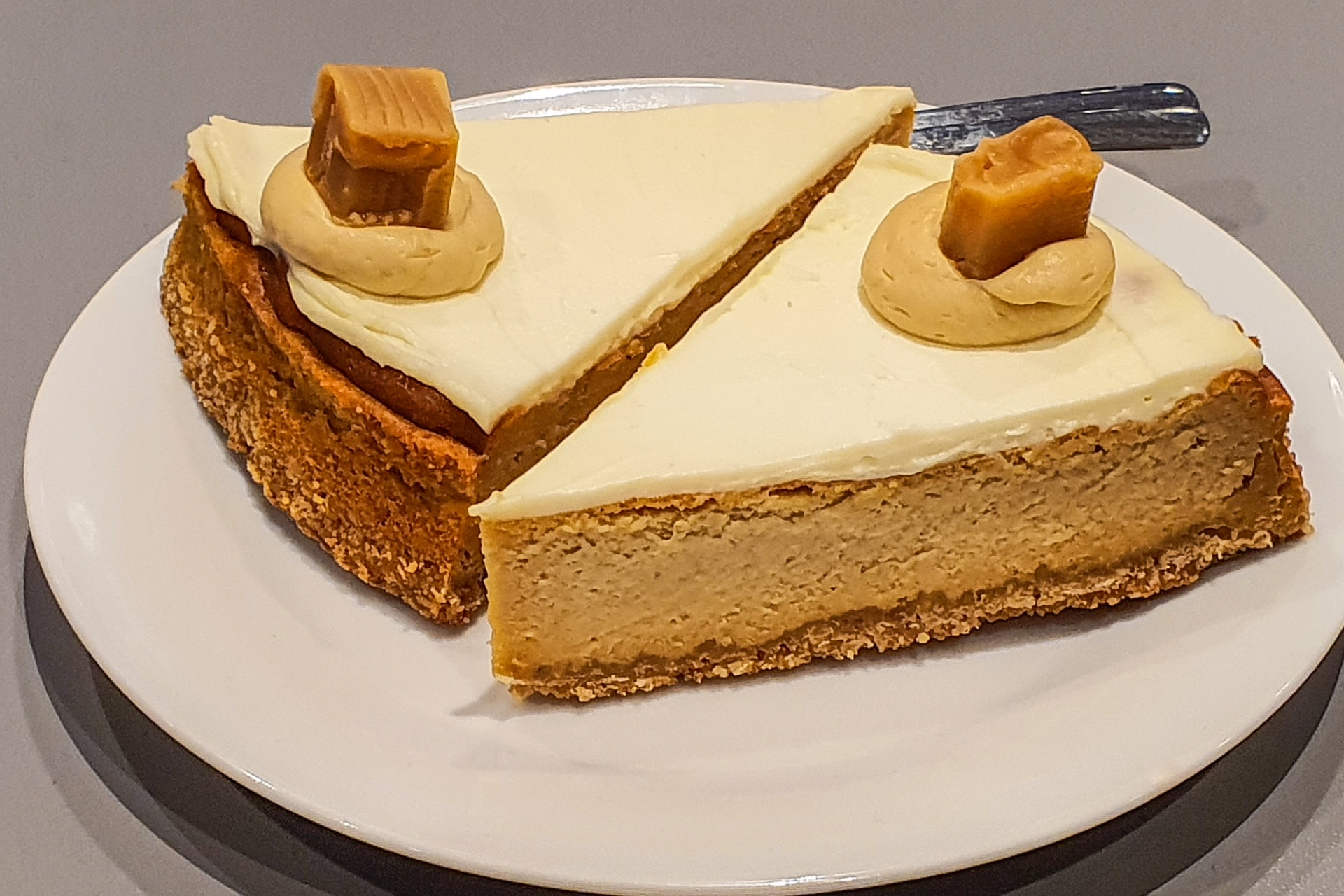Can You Refreeze Cheesecake? Fanatically Food

Can You Refreeze Cheesecake? Fanatically Food
For baked cheesecake, allow it to cool to room temperature and then chill in the fridge until set. For no-bake cheesecake, be sure your cheesecake has chilled long enough for it to set before freezing. Don't add any toppings at this point—wait to do so until just before serving. 2. Wrap With Plastic Wrap.

Can You Freeze Cheesecake? Find Out Here! Freeze It
To do this, remove the cheesecake from the freezer and let it sit at room temperature for about 10 minutes. Then, slice the cheesecake into individual portions and place them on a microwave-safe plate. Microwave the cheesecake on high for 20 to 30 seconds, or until it's warm and the filling is heated through.

Baked 'Polish' Cheesecake
In a nutshell, yes, you can, but only if you have been careful enough during the wrapping and storing stage. Your cheesecake can remain safe even after six months of re-freezing it, but it won't guarantee the same quality. Over time, cheesecakes are bound to lose their moisture, texture, and even taste. The crust can get mushy, and the.

No Bake Strawberry Cheesecake GlutenFreeFix
A thawed cheesecake left sitting in room temperature above 41 F it can go into the refrigerator, as long as it hasn't been sitting out for more than the two hours, according to the U.S. Department of Agriculture. Wrap slices or the whole cheesecake in plastic wrap before refrigerating. Wrapped in plastic the shelf life of the cheesecake is.

Cheesecake Free Stock Photo Public Domain Pictures
Steps To Refreeze A Store-bought Cheesecake. If you plan to refreeze a cheesecake, you'll want to do it properly to ensure it keeps its quality and flavor as long as possible. Store-bought brands like Sara Lee and Junior's refreeze well, provided you follow the steps below. 1. Store The Cheesecake On A Firm Surface

Strawberry Cheesecake Ice Cream Recipe
The best way to freeze cheesecake is to first bake the cheesecake and allow it chill. After the cheesecake has set, either leave the cheesecake in the springform pan, remove the sides of the springform pan, or transfer the cheesecake to a freezer-safe cardboard round. Then, wrap the cheesecake (and pan, if using) in at least two layers of.

Toffee Cheesecake Free Stock Photo Public Domain Pictures
If you are careful enough, you can safely refreeze cheesecake for 6-8 months. Although the quality might be affected, it will still be safe to eat. However, once this limit crosses, you should toss it out immediately. Eating it after the six-month limit pass is no more edible. If you want to ensure proper refreezing of cheesecake, make sure you.

Can You Refreeze Cheesecake? 6 Things to Consider. flavrstream
Can I Refreeze Cheesecake- Understanding Freezing and Refreezing Cheesecake. Cheesecakes are resilient desserts, capable of being frozen for extended periods without sacrificing flavor. Freezing a whole cheesecake can extend its life for up to a year, but once you start slicing, the countdown begins. Sliced cheesecake remains good for about.

301 Moved Permanently
Yes, you can freeze a cheesecake. In fact, some recipes emerge best after they've been frozen. Freezing allows you to make the cake ahead of time and then thaw it when you're ready to serve it. However, not all cheesecakes are made equal; some have a softer texture than others and therefore don't freeze as well.

Can You Refreeze Cheesecake? Fanatically Food
Preserving Perfection: The Best Way to Refreeze Cheesecake. Temperature Control: Ensure the cheesecake stays within safe temperature limits. Bacteria multiply rapidly between 40°F (4°C) and 140°F (60°C). Prompt Refreezing: Refreeze the cheesecake promptly to minimize the time it spends at room temperature, reducing the risk of bacterial growth.

Can You Refreeze Cheesecake The Conversation Prism
Here's how: Refrigerate overnight. Remove the foil first, but keep the plastic wrapping on, so any condensation settles on the outside of the wrapper. This should stop your cheesecake from going soggy. Bring to room temperature. Leave the cheesecake on the counter until it reaches room temperature. Decorate.

Cheesecake on Plate · Free Stock Photo
Chill the cheesecake thoroughly in the refrigerator. Cut the cheesecake into portions, if you like, or leave it whole. Place the cheesecake on a cardboard round. Wrap it well in plastic wrap, then foil. Freeze for up to 1 month for optimal flavor, 2 months is the max. Thaw in the fridge, on the counter, or in the microwave before serving.

Can I Refreeze Cheesecake? LEAFtv
Step 3: Wrap with Foil. Once it's wrapped in plastic wrap, wrap it again in foil. Repeat until all of the slices are tightly wrapped. Freeze for up to one month (or two if you're not a stickler for quality control). When you're ready to eat, allow the cheesecake to thaw at room temperature for about 2 to 4 hours or in the refrigerator.

Cheesecake freezes surprisingly well. Typically made with cream cheese
Here's how to freeze cheesecake: Let the cheesecake cool completely. Wrap the cheesecake tightly in plastic wrap, then cover it with aluminum foil. Place the wrapped cheesecake in an airtight container or freezer bag. Label the container or bag with the date and contents. Place the cheesecake in the freezer.

Cleochatra’s Ultimate Cheesecake Your Lighter Side
Then put your cheesecake in the refrigerator for 4-6 hours. Step 2: The next step is to consider whether you want to freeze your cheesecake whole or sliced. If you want a showstopping, complete dessert for your guests, then don't slice it up. It will freeze just as well either way, so it's entirely up to you. If you're freezing leftovers.

Deze 'raw cheesecake met frambozen' is glutenvrij, zuivelvrij en gezoet
Because cheesecake is made with dairy products, including cream cheese as the main ingredient, you must refrigerate it at 40 degrees Fahrenheit or below to prevent the growth of harmful mold and bacteria. Refrigerated cheesecake has a shelf life of about one week, but if you put it in the freezer, it can last for around six to eight months at 0.